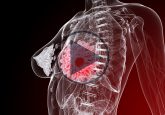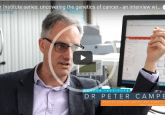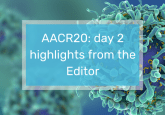The importance of sentinel lymph node biopsies in the diagnosis of head and neck cancer
Discover the importance of a sentinel lymph node biopsy as a technique to accurately diagnosis and stage tumours in head and neck cancer. Irene Ruiz (University Hospital Quirónsalud and the European University of Madrid, Spain) and Paweł Golusiński (Poznań University of Medical Sciences and Greater Poland Cancer Center, Poland) discuss this important topic at the 8th European Congress on Head and Neck Oncology (ECHNO, Rome, Italy, 11–14 April 2018) in the session ‘Exploring the Power, Purpose and Practice of an Integrated Approach to Care’ held by the Make Sense campaign.
For more information on the Make Sense campaign, visit http://makesensecampaign.eu/
Transcript:
I have to say first that a sentinel lymph node biopsy is not a treatment option. The sentinel lymph node technique is a diagnostic technique that helps us to stage the tumor.
In that midpoint when we have a T1 T2, clinically N0, and we don’t have criteria to decide if we should wait or if we should operate the neck; the sentinel lymph node biopsy is perfect to try to have more information about the tumor. So if the sentinel lymph node is negative at the end, we just have to wait and closely monitor the neck. If at the end it is positive we just have one solution – that is operating on the neck.
It’s clear that we can find high survival if we operate the neck but on the other hand, if we operate all the clinically N0 necks – we over treat 70–80% of our patients.
In my opinion we have to rethink the question we ask ourselves. Do we need to operate the neck? Does the neck really have disease?
We have to stage this risk. How can we do this? With accurate diagnosis, early detection, close monitoring of the neck and with follow-up algorithms.
The sentinel lymph node biopsy is a minimally invasive and accurate diagnostic technique. Sentinel lymph node protocol opens the way to study lots of new molecular markers for the tumor and for the nodes.
We have to stage the tumor, individually, for each patient and of course we really need a multidisciplinary team of radiologists, nuclear medicine specialists, surgeons and pathologists to get that kind of result.
I know that sentinel lymph node biopsy is not a technique that in all the centres we can do, so I think we have to work with reference national centers. It is difficult in some countries like in Spain, where we do not have these kinds of protocols. But 5–6 years ago a group was created CENT group that are working; doing reviews and join data and trying to get new protocols.
Sentinel lymph node biopsy is actually a very useful diagnostic modality but there are certain conditions, that first of all, have to be addressed. High-volume institution with a great experience in that procedure and the protocols need to be meticulously validated.





